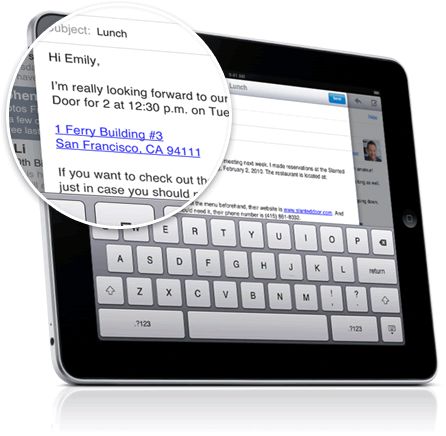iPad & Tablet Users Asking for Identity Theft
The identity theft and corporate data risk problem isn’t limited to iPad users – it affects all Tablets – but iPads are leading the way. With the rapid increase in highly powerful tablet computers, including the Motorola Xoon and Samsung Galaxy, a new survey is urging users to beware of the risks. Harris Interactive just released a study showing that tablet users transmit more sensitive information than they do on smartphones and are considerably less confident of the security protecting those tablets.
The survey shows that 48% of tablet users transfer sensitive data using the device while only 30% of smart phone users transfer sensitive information. The types of sensitive data included credit card, financial, personal and even proprietary business information. Many factors contribute to the increased risk:
- Users initially bought tablets as book readers and web browsers, but have increasingly added to their functionality with new Apps.
- Tablet computers are in their infancy and haven’t been equipped with the same security features as laptops and desktops.
- Corporate users haven’t yet been trained on securing the data on tablets.
- Tablets are more capable than smartphones, making it a natural laptop replacement, but without the robust, time-tested security.
- Indiscriminate App downloading (covered in detail in the Smartphone Survival Guide) greatly increases chances of accidentally loading malware to your tablet.
- Many companies buy their employees tablets rather than laptops because they are less expensive, more mobile, and have similar capabilities. Unfortunately, they are failing to consider the increased risk posed by the trendy computers.
If you are using your tablet like a laptop (email, accessing bank accounts, transmitting business documents), take the following minimum steps:
- Turn on password protection to get into the device.
- Enable remote tracking and wiping capabilities in case the device is lost or stolen.
- Utilize secure wireless connections only (not free WiFi hotspots in cafes, airports and hotels) to eliminate signal sniffing.
- Limit the data you store and transmit on your tablet until the security features have caught up with the functionality.
- Physically lock up the device when not in use. Never leave it on the table at Starbucks like someone did in the photo to the right.
Tablets are a slippery slope – they make computing so user friendly that you start to think it’s a friendly computing world out there. Unfortunately, cyber criminals and your competitors have a different idea. Don’t wait to find out what they can do with your private data.
John Sileo trains organizations to protect sensitive data, including that exposed on tablets, smartphones, laptops and social networking sites. His clients include the Department of Defense, Pfizer, Homeland Security and organizations of all sizes. Learn more about bringing in a Data Security Speaker or contact John directly on 800.258.8076.
Sorry, comments for this entry are closed at this time.












No Comments Yet
You can be the first to comment!